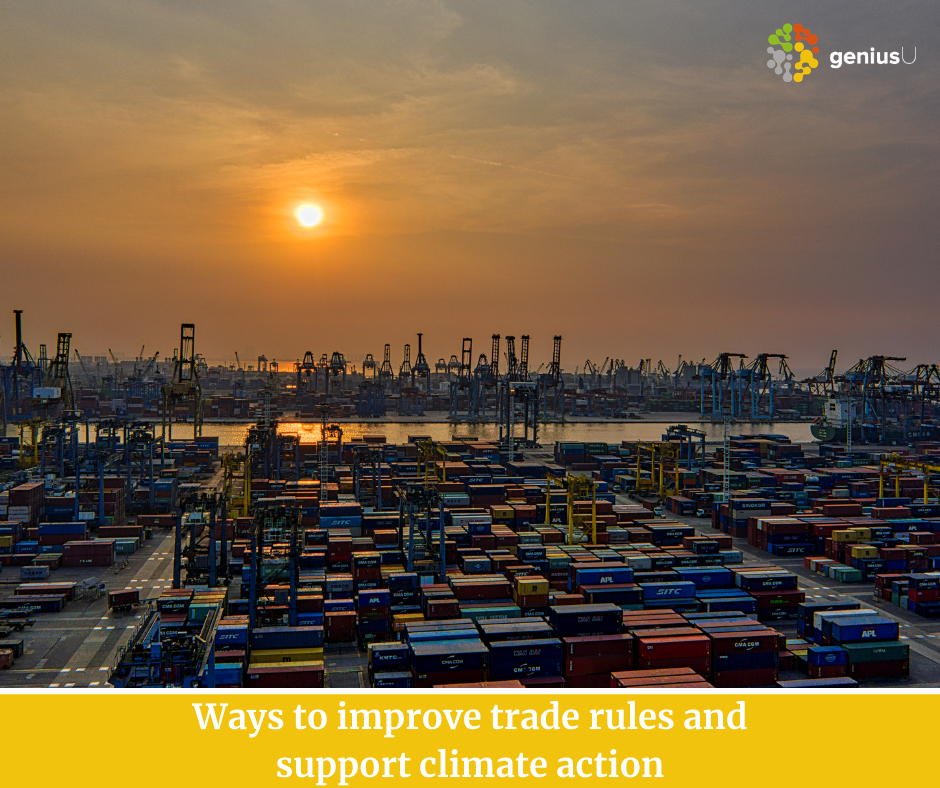
There is a myth that trade policy and climate action are inherently at odds. That does not have to be the case. Trade can, and should, be a driver of sustainable innovation, productivity, efficiency, and growth.
Over 1,000 major companies have committed to net-zero emissions by 2050, while 126 countries have formally adopted net-zero goals.
Net-zero describes a state where no new overall emissions are added to the atmosphere and any unavoidable residual emissions are balanced by natural or technological carbon sequestration. The goal is key to keep on track with the Paris Agreement on climate change and keep the global temperature rise to 1.5°C above pre-industrial levels.
Achieving this goal will require deploying new technologies and changing business models. Clean energy needs to be accelerated and there’s much to be gained from energy efficiency. Over two-thirds of global emissions – excluding land-use emissions – are linked to energy needs and energy demands will keep growing.
-
Climate change goals require urgent global action – drawing on the brightest minds and the latest clean technology.
-
To support this, governments must introduce sustainable trade policies that enable a swift transition to net-zero.
-
Eliminate tariffs on climate-friendly goods
Negotiations to cut tariffs on more general environmentally friendly goods have been tried and failed before. Yet never has climate action been such a point of consensus among major trade nations and the private sector. Moving to zero tariffs on the products most commonly used for decarbonization would send the right signals to markets. -
Remove barriers on environmentally friendly services
These are often a critical part of environmental goods, such as the installation and maintenance of renewable energy goods. Several studies point to the deeply intertwined nature of environmental products and services since consumers often value the output – clean energy – rather than the item itself. -
Tackle regulatory barriers
We need to learn more about regulatory friction between markets affecting climate action across supply chains. Licensing challenges, technology conformity assessments, and local content requirements can affect the way businesses implement sustainability plans across supply chains. Technical and regulatory standards are a vital part of any government’s toolbox, but these should not unnecessarily increase the costs of adopting technologies that help businesses decarbonize.
Some of these actions may be moved forward more quickly than others. Such steps should be taken without delay as the time for tackling climate change is running short.
Source: World Economic Forum

















Leave a Reply